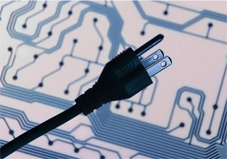|
|
Electrical CERTIFICATION OF ELECTRICAL EQUIPMENT
Product certification is the attestation, given by a certification body, based on a decision that results from an analysis, which shows that the compliance of a product with specified requirements has been demonstrated. To access the Marks of conformity granted by CERTIF was adopted No. 5 system of ISO/IEC which requires the completion of initial tests on a sample of the product to certify and audit manufacturer's quality system, followed by annual monitoring through tests and audits.The advantages of certification Certification is good for all sectors of society and to the companies with certified products. In logic of market access and enhance image with consumers, certification facilitates the demonstration of the quality of their products in various markets, increases their competitiveness against others who do not have their products certified, supports and increases sales, avoids complaints and additional inspections and allows to demonstrate compliance with regulatory requirements. When products are certified according to European or international standards, certification protects exportation from any technical barriers that may occur to place products in those markets.International Recognition CERTIF ensures international relations, participating in several meetings in the European and international agreements for certification in order to enable the preparation of certification programs that respond to the requests submitted by the various national entities. At the European level CERTIF is signatory of the following agreements on mutual recognition of certification within the EEPCA - European Electrical Products Certification Association:
CERTIF is also recognized as a Notified Body under the Low Voltage Directive, that allows to support national companies that need to affix the CE marking on their products. Certification procedures To obtain any of these conformity marks, the manufacturer must address or contact CERTIF that will give all the information and provide all necessary documentation. The certification process follows the methodology defined in the document DO.07 CERTIF – Certified Product Mark
CCA Agreement (CENELEC Certification Agreement) is an agreement on mutual recognition of conformity marks, which allows any manufacturer who has obtained CERTIF Certified Product Mark to get the mark of all other CBs members of this Agreement, through an administrative process. ENEC Mark
This mark is recognized in all countries whose CBs are subscribers of this European certification agreement. ENEC mark not only allows easy access to the EU market, but also to all EFTA countries and has a high level of acceptance and recognition in the countries of Eastern Europe. ENEC Mark
This mark is recognized in all countries whose CBs are signatories to this Agreement. Certificates of conformity under IECEE CB Scheme and CB-FCSCB Scheme allows for the mutual recognition of test reports carried out on products, in accordance to international standards (IEC) through the issue of a CB certificate by CERTIF. CB-FCS is a multilateral agreement between certification bodies for recognition of test results and audits to obtain other marks of conformity. Test laboratories National Accredited laboratories that work with CERTIF and have European and international recognition for those tests are:
Actions to be performed by manufacturer To certify its products, the manufacturer must apply for certification to CERTIF filling the IM.27 form and enclosing all the documents mentioned therein.
|


 ENEC Agreement is a contract for the assignment of a common European mark that has an identification number of the certification body that provides it.This agreement applies to all the products and electrical equipment, for which there are CENELEC European standards (EN).
ENEC Agreement is a contract for the assignment of a common European mark that has an identification number of the certification body that provides it.This agreement applies to all the products and electrical equipment, for which there are CENELEC European standards (EN).